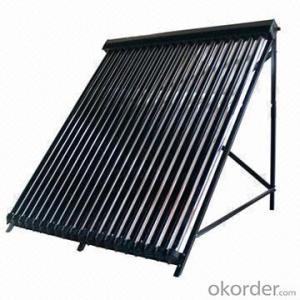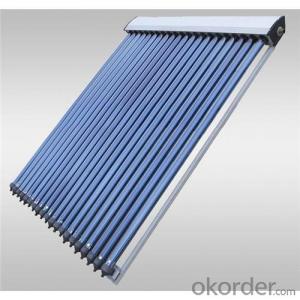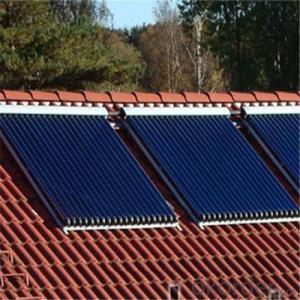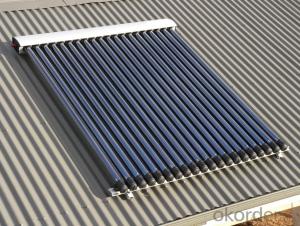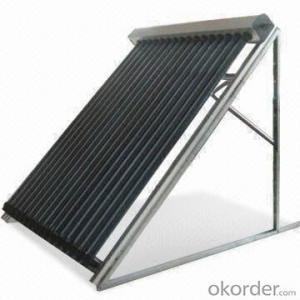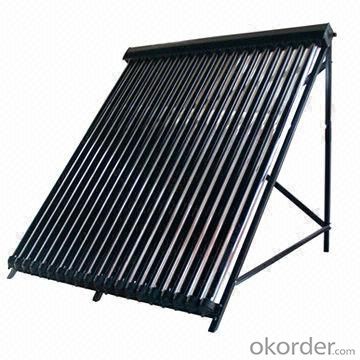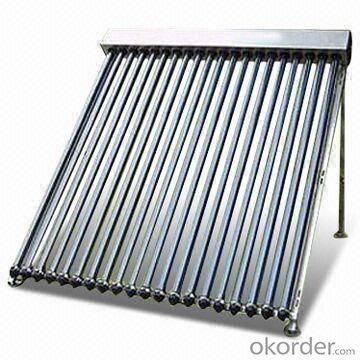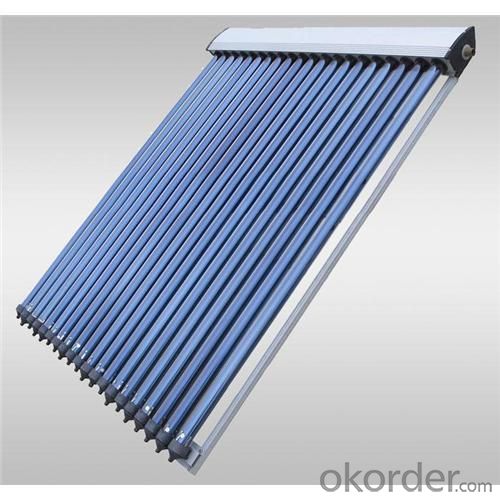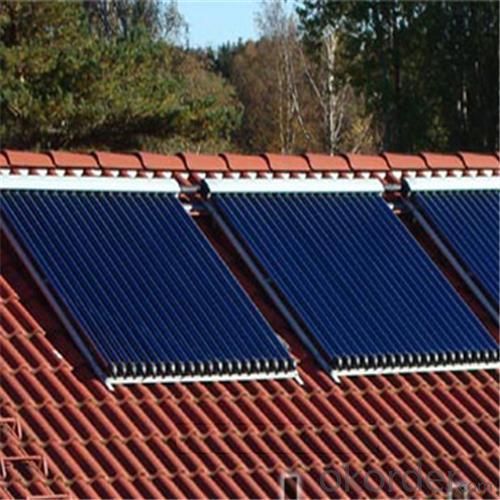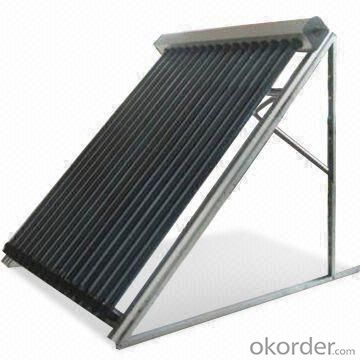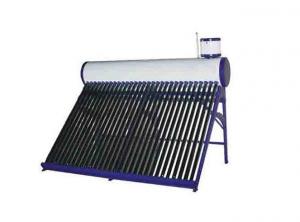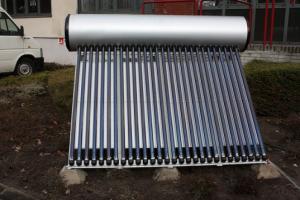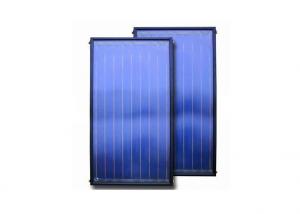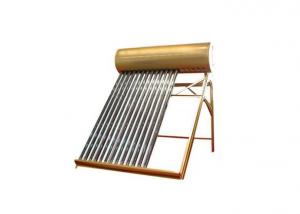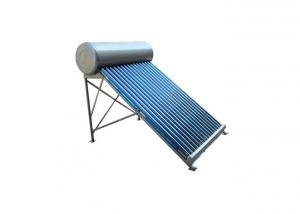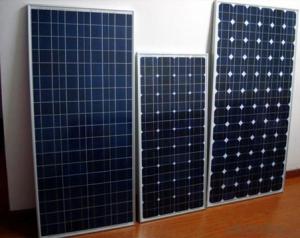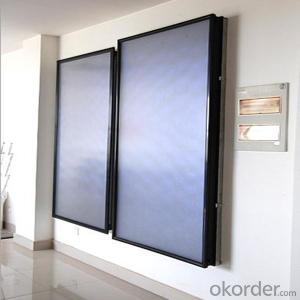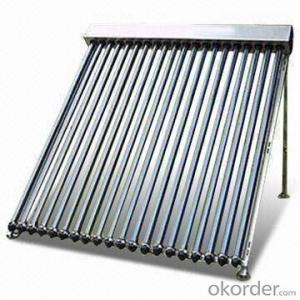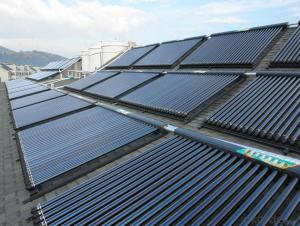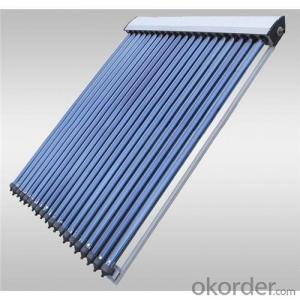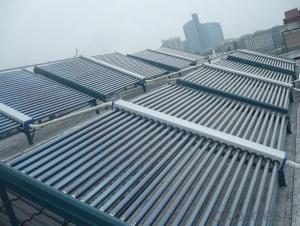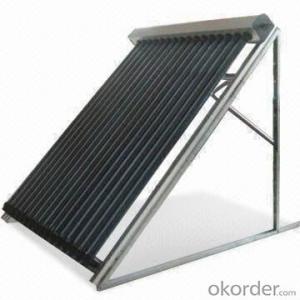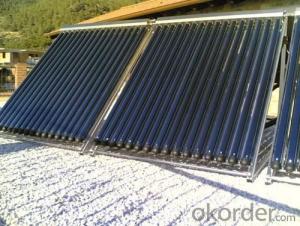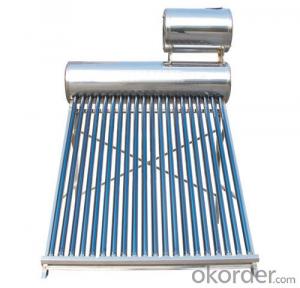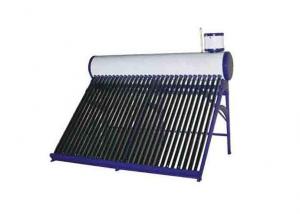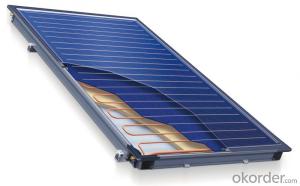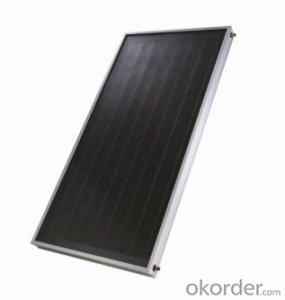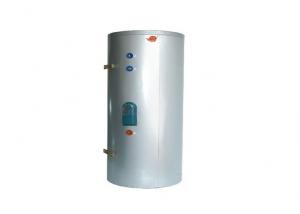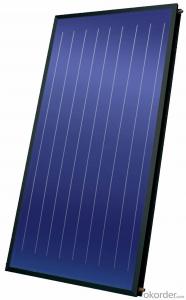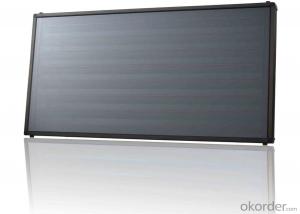Air Solar Collectors - 15 Tubes Solar Pipes Solar Collectors EN12975
- Loading Port:
- China main port
- Payment Terms:
- TT OR LC
- Min Order Qty:
- 5 set
- Supply Capability:
- 10000 set/month
OKorder Service Pledge
OKorder Financial Service
You Might Also Like
Specification
manifold (inner) | red copper |
manifold (exterior) | aluminum alloy |
glass tube dimensions | 58mm * 1800mm |
daily efficiency | ≥55% |
heat preservation | 72 hours |
hail resistance | 25mm |
max pressure | 7 bar |
coating of vacuum tube | ALN/AIN-SS/CU |
heat pipe | anti-freezing > -35 degree |
certificate | Solar Keymark, EN12975,SRCC |
Serious Product
Models | L*W*H mm | Vacuum tube | Power output | Efficiency | Header mm | Frame | container loading 20FT/40HQ sets | Gross Weight kg |
SHC-8 | 1917*910*133 | 58*1800*8pcs | 939W | 0.668 | Φ35/1.0 | AL alloy | 185/445 | 27 |
SHC-10 | 1917*1130*133 | 58*1800*10pcs | 1189W | 159/385 | 33 | |||
SHC-12 | 1917*1350*133 | 58*1800*12pcs | 1440W | 149/358 | 40 | |||
SHC-15 | 1917*1680*133 | 58*1800*15pcs | 1815W | 120/290 | 49 | |||
SHC-18 | 1917*2010*133 | 58*1800*18pcs | 2191W | 100/242 | 59 | |||
SHC-20 | 1917*2230*133 | 58*1800*20pcs | 2442W | 87/210 | 66 | |||
SHC-22 | 1917*2450*133 | 58*1800*22pcs | 2692W | 83/202 | 72 | |||
SHC-24 | 1917*2670*133 | 58*1800*24pcs | 2943W | 77/188 | 79 |
Packaging & Delivery
Packaging Details: | Exporting Carton with big foaming protection |
Delivery Detail: | In 10-15 days |
Loading Quantity
Model | Tube | Tube Q.T.Y | Loading Q.T.Y/40HQ |
GSC15 | 58*1800mm | 15pcs | 315sets |
GSC18 | 58*1800mm | 18pcs | 265sets |
GSC20 | 58*1800mm | 20pcs | 248sets |
GSC22 | 58*1800mm | 22pcs | 225sets |
GSC25 | 58*1800mm | 25pcs | 200sets |
GSC30 | 58*1800mm | 30pcs | 168sets |
Details of solar collector:
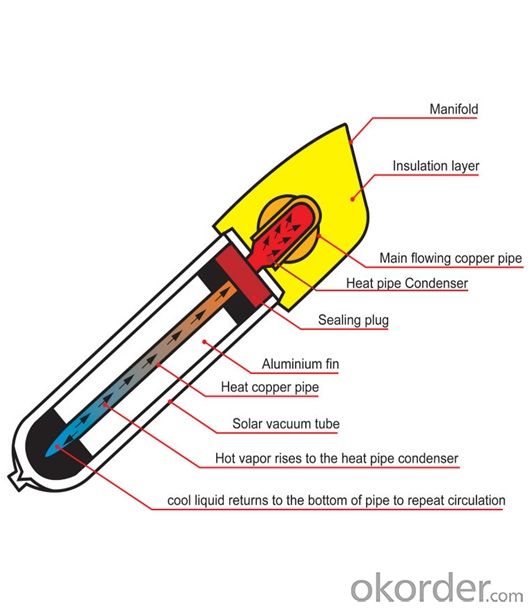
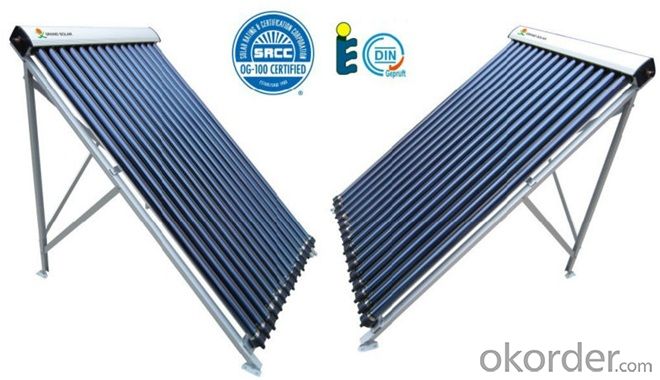
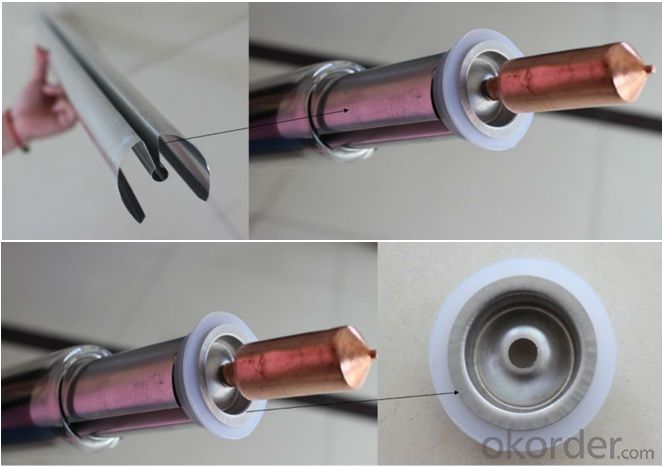
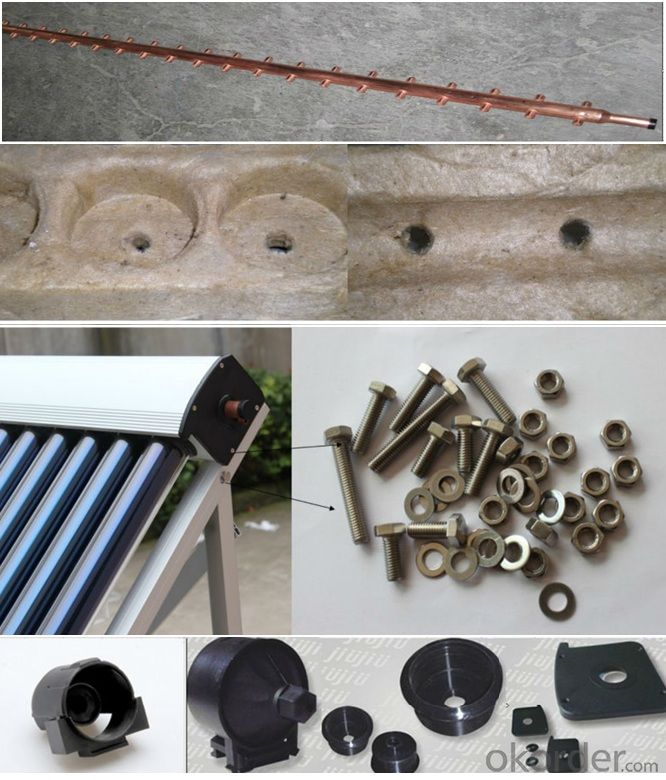
- Q: Can solar collectors be used in trains?
- Yes, solar collectors can be used in trains. Solar panels can be installed on the rooftops of trains to harness solar energy and power various onboard systems such as lighting, air conditioning, and electronic devices. This helps reduce fuel consumption and greenhouse gas emissions, making trains more sustainable and energy-efficient.
- Q: How do solar collectors affect the environment?
- Harnessing the sun's energy, solar collectors contribute positively to the environment by generating electricity or heat without emitting harmful pollutants or greenhouse gases. This utilization of renewable energy helps decrease our reliance on fossil fuels, which are major contributors to air pollution and climate change. Moreover, solar collectors have a limited impact on land usage. They can be easily installed on rooftops, avoiding the need for additional land or disruption of natural ecosystems. Furthermore, these collectors can be integrated into existing infrastructures, such as parking lots or agricultural fields, optimizing their efficiency and minimizing adverse effects on the environment. Conservation of water is also a significant aspect. Conventional power generation methods like coal or natural gas consume substantial amounts of water for cooling purposes. Conversely, solar collectors operate without the need for water, therefore preserving this valuable resource. It is true that the production of solar collectors does have some environmental implications, particularly regarding the mining and manufacturing processes required for the necessary materials. However, these impacts are relatively minimal when compared to the long-term benefits of solar energy utilization. Overall, solar collectors make a positive impact on the environment by reducing greenhouse gas emissions, conserving water, and minimizing land usage. They play a critical role in the transition towards a more sustainable and clean energy future.
- Q: Are solar collectors suitable for hospitals and healthcare facilities?
- Yes, solar collectors are suitable for hospitals and healthcare facilities. They provide a sustainable and cost-effective source of energy for various operations, including heating water, powering equipment, and generating electricity. By utilizing solar energy, healthcare facilities can reduce their carbon footprint, lower energy costs, and contribute to a healthier environment. Additionally, solar collectors can help ensure a reliable energy supply during power outages, which is crucial for maintaining critical medical services.
- Q: How do solar collectors affect the aesthetics of a building?
- Solar collectors can have both positive and negative impacts on the aesthetics of a building. On one hand, well-designed and integrated solar collectors can enhance the visual appeal of a building by adding a sleek and modern touch. They can be incorporated seamlessly into the architecture, becoming an attractive feature that showcases the building's commitment to sustainability. On the other hand, poorly designed or improperly installed solar collectors may appear unsightly, disrupting the overall aesthetics of the building. Therefore, the aesthetic impact of solar collectors largely depends on the design, placement, and quality of installation.
- Q: Can solar collectors be used for heating food in commercial kitchens?
- Yes, solar collectors can be used for heating food in commercial kitchens. Solar collectors, such as solar thermal panels or parabolic troughs, can efficiently capture and convert solar energy into heat. This heat can then be used to power various cooking appliances in a commercial kitchen, including ovens, stoves, and grills. By harnessing the power of the sun, commercial kitchens can reduce their reliance on fossil fuels and traditional energy sources, leading to cost savings and environmental benefits. Solar collectors can provide a renewable and sustainable solution for heating food, especially in regions with abundant sunlight. However, it is important to note that the implementation of solar collectors for commercial kitchens might require careful planning and consideration. Factors such as the availability of sunlight, the size and capacity of the solar collectors, and the energy demands of the kitchen need to be taken into account to ensure the system meets the required heating requirements. Moreover, solar collectors might not be suitable for all food preparation processes in a commercial kitchen. They are better suited for tasks that require lower or moderate heat, such as simmering, boiling, or slow cooking. For high-temperature cooking methods like frying or searing, additional conventional heat sources may still be necessary. In conclusion, solar collectors can indeed be used for heating food in commercial kitchens, offering a sustainable and renewable alternative to traditional energy sources. However, careful planning and consideration of specific needs and requirements are essential to ensure the successful integration of solar heating systems in commercial kitchen operations.
- Q: Are there any maintenance costs associated with solar collectors?
- Yes, there are some maintenance costs associated with solar collectors. While solar collectors are generally low-maintenance, regular cleaning of the panels may be required to ensure optimal performance. Additionally, periodic inspections and maintenance of other system components such as pumps, inverters, and batteries may be necessary.
- Q: How do solar collectors affect the roof structure of a building?
- Solar collectors, such as solar panels, can have a minimal impact on the roof structure of a building. While the weight of the collectors may slightly increase the load on the roof, it is typically within the design limits of the structure. Proper installation techniques, including reinforcement if necessary, ensure that the roof can support the additional weight. Additionally, solar collectors can provide some protective benefits by shielding the roof from various weather elements, thus potentially extending its lifespan.
- Q: Can solar collectors be used in solar thermal cooling?
- Solar thermal cooling systems have the ability to utilize solar collectors for their operation. These collectors, such as flat plate or evacuated tube collectors, capture the sun's radiation and convert it into heat energy. This heat energy can then be utilized to power a thermally-driven cooling system like an absorption or adsorption chiller. When implementing a solar thermal cooling system, the solar collectors are typically connected to a heat transfer fluid, which can be water or a specialized fluid. This fluid absorbs the heat from the sun and is subsequently employed to drive the cooling process in the chiller system. The chiller system, powered by the solar collectors, effectively cools the air or fluid utilized in the cooling system. The use of solar collectors in solar thermal cooling systems results in reduced or eliminated reliance on traditional electricity for cooling purposes. This leads to significant energy and cost savings. Moreover, solar thermal cooling systems have lower greenhouse gas emissions compared to conventional cooling systems, making them an environmentally friendly option. However, it is important to consider that solar thermal cooling systems may have limitations in terms of their cooling capacity. Additionally, they require sufficient sunlight to operate optimally. Factors such as system design, climate conditions, and energy storage solutions must also be taken into account to effectively utilize solar collectors in solar thermal cooling.
- Q: Can solar collectors be used for heating factories?
- Yes, solar collectors can be used for heating factories. By harnessing solar energy and converting it into thermal energy, solar collectors can provide heat for various industrial processes in factories. This renewable and sustainable method of heating can help reduce reliance on traditional fossil fuel-based heating systems, thereby contributing to cost savings and environmental benefits.
- Q: Can solar collectors be used in swimming pool heating?
- Yes, solar collectors can be used in swimming pool heating. Solar collectors, also known as solar panels or solar thermal systems, are an environmentally friendly and cost-effective way to heat swimming pools. These collectors capture the sun's energy and transfer it to the pool's water, effectively and efficiently raising its temperature. By utilizing solar collectors, pool owners can enjoy warmer water without relying solely on conventional heating methods, reducing energy costs and carbon emissions.
Send your message to us
Air Solar Collectors - 15 Tubes Solar Pipes Solar Collectors EN12975
- Loading Port:
- China main port
- Payment Terms:
- TT OR LC
- Min Order Qty:
- 5 set
- Supply Capability:
- 10000 set/month
OKorder Service Pledge
OKorder Financial Service
Similar products
Hot products
Hot Searches
Related keywords
